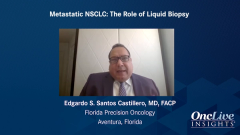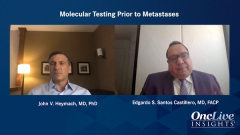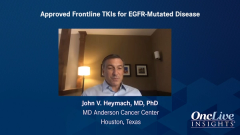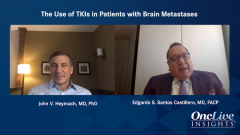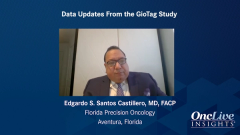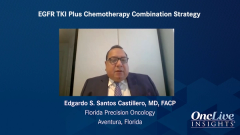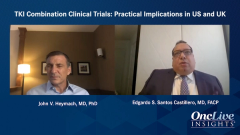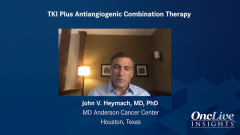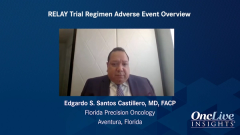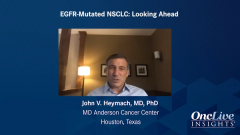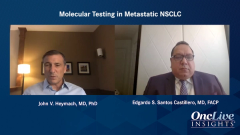
Molecular Testing Prior to Metastases
Episodes in this series

John V. Heymach, MD, PhD: Here’s another issue that’s emerging. You know the ADAURA results just presented at ASCO [American Society of Clinical Oncology Annual Meeting] said that there looks like there is a good benefit for using EGFR inhibitors in the adjuvant setting if somebody has an EGFR mutation. It’s not FDA approved. We’re eagerly following those results and that submission, but it raises the question: Do you send profiling in the earlier-stage patients? Do you send it early in the work-up when you’re not sure if they’re metastatic? Or do you wait until you’re sure they’re metastatic before you send it?
Edgardo S. Santos Castillero, MD, FACP: That’s a good question, John. I have been using it, and I’m pretty sure you have been as well for many years. We have been using next-generation sequencing for metastatic non–small cell lung cancer. Now I need to sit down and think, “What vendor can help me do a PCR [polymerase chain reaction] for EGFR?” I have to think about it, because when you look into that, basically everyone has a panel, and a minimal panel is with maybe 25 genes, 50 genes. It can go up to 600 genes, so at this moment if I have 2 patients—to answer your question—who are postsurgical adenocarcinoma, 1 is a never smoker and the other was a former smoker, I send the panel but try to do a smaller panel.
John V. Heymach, MD, PhD: Right. Let me ask you about something else. There have been a number of studies: studies with erlotinib—for example, the old CALGB study—and studies with afatinib, that have shown that L858R seemed to do worse than exon 19 deletion in terms of outcome. They both respond to drugs. Is that consistent with your experience? Do you shape your therapy based on that at all right now? How are you taking that into account?
Edgardo S. Santos Castillero, MD, FACP: Yes, I agree with those observations. Since the IPASS trial in which gefitinib was compared with carboplatin–Taxol [paclitaxel] more than 10 years ago by Tony Mok, we know that those 2 common and sensitive EGFR mutations—exon 19 and L858R, which you said—are not equal. They are not equal, and they are different in how long the patient will remain on therapy, which is something that we call progression-free survival. When you see all the data from that time until now, and there is either a post hoc analysis, a subset analysis, or a prespecified analysis, there is always a difference between exon 19 and exon 21, which is the L858R. Although they will respond well, how long the patient will be without progression is always lower for the L858R. It doesn’t matter what TKI [tyrosine kinase inhibitor] you use: You will always see the difference. For that observation, I agreed.
I haven’t done the difference in terms of therapy, and we’ll probably discuss that later. Until recently, there is a clinical trial that we will also discuss later: the RELAY trial, in which there is a difference there compared with what we have seen in the past through several clinical trials.
John V. Heymach, MD, PhD: Right. It’s interesting that this held up with the osimertinib study. It was the frontline study, FLAURA, where osimertinib was compared with gefitinib or erlotinib. The benefit for osimertinib was striking in the exon 19 deletions, but it was much more modest in the L858R mutations.
Edgardo S. Santos Castillero, MD, FACP: Correct, exactly. Even with osimertinib—which as you know is a secondary drug by the NCCN [National Comprehensive Cancer Network] and is also the preferred agent from the NCCN, the third-generation TKI, which is very powerful with a good toxicity profile—there was a difference between those 2 mutations.
Transcript edited for clarity.


